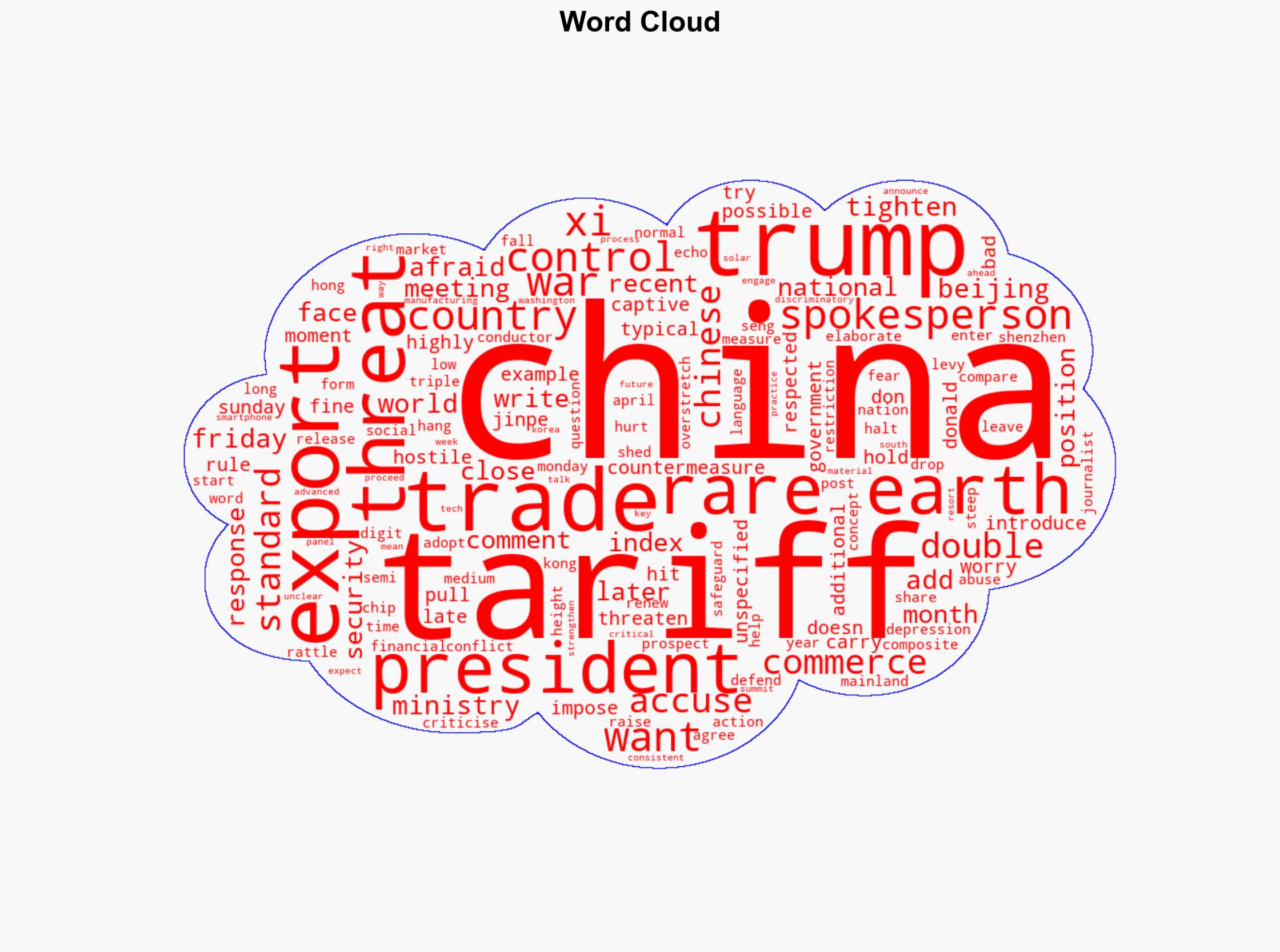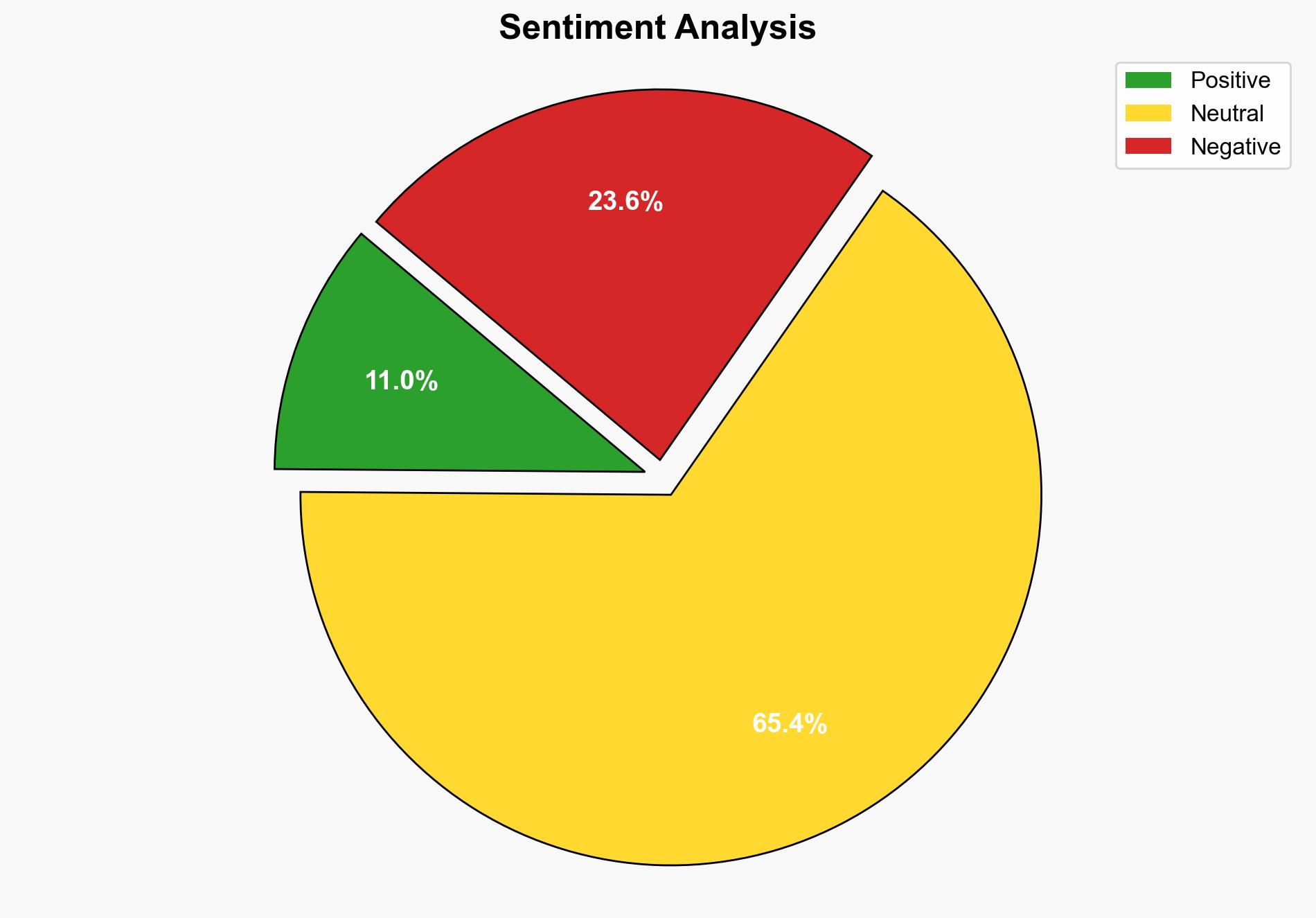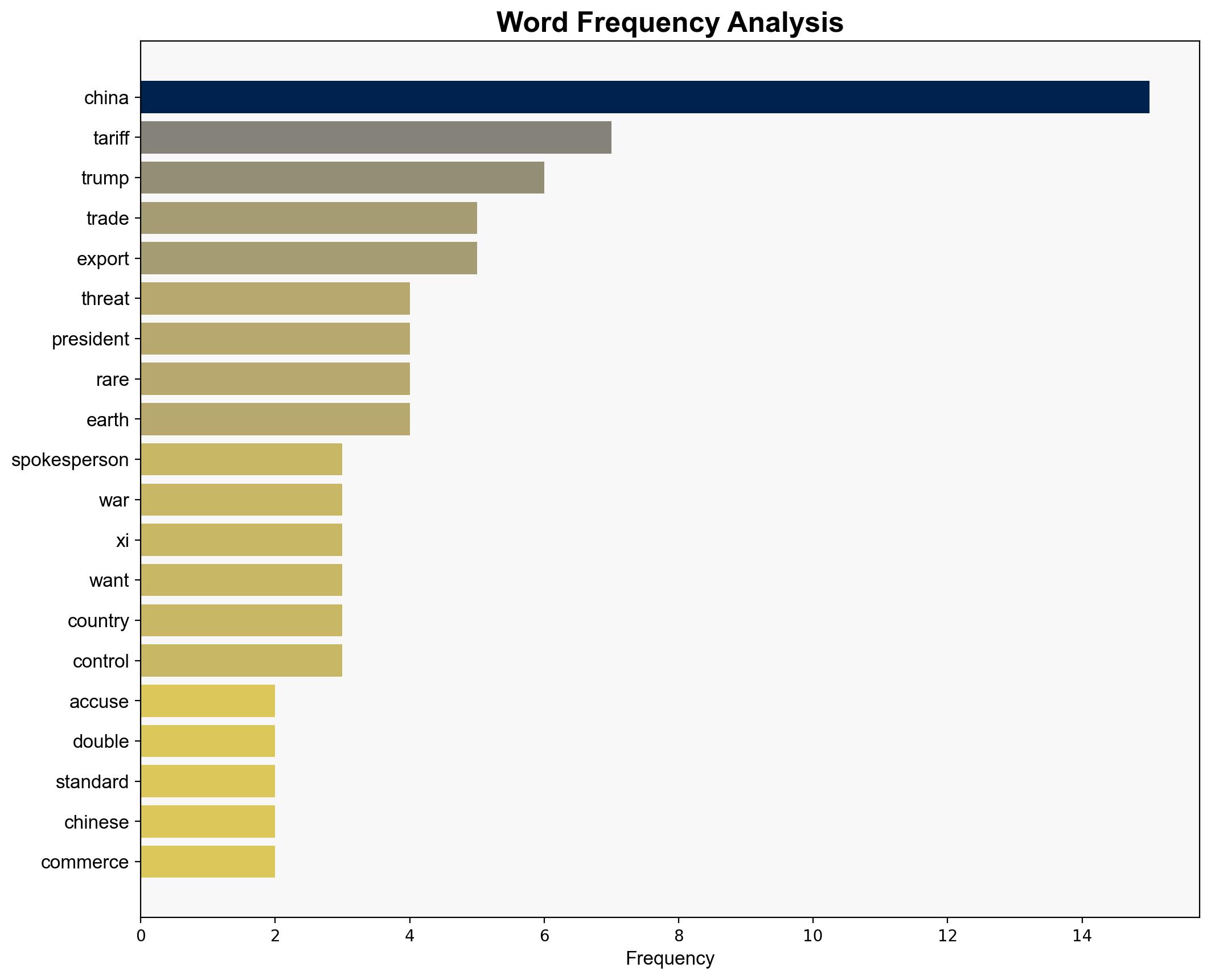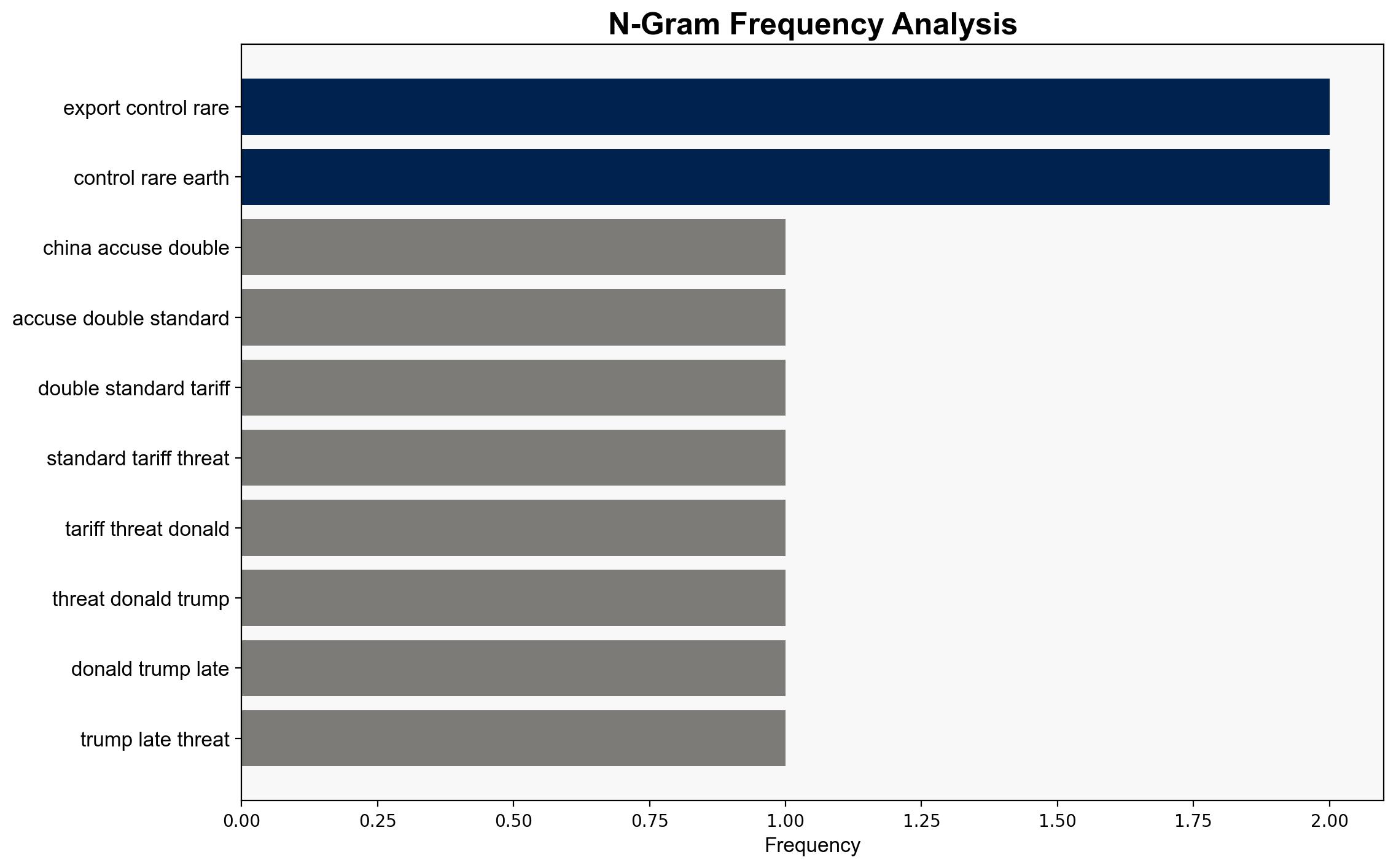China accuses US of ‘double standards’ over tariff threat – BBC News
Published on: 2025-10-12
Intelligence Report: China accuses US of ‘double standards’ over tariff threat – BBC News
1. BLUF (Bottom Line Up Front)
The analysis suggests that China’s accusation of US double standards in tariff threats is a strategic maneuver to strengthen its negotiating position ahead of potential trade talks. The most supported hypothesis is that both nations are posturing to gain leverage in future negotiations. Confidence level: Moderate. Recommended action: Monitor upcoming trade discussions closely and prepare for potential economic and geopolitical shifts.
2. Competing Hypotheses
1. **Hypothesis A**: China’s accusations are primarily a negotiation tactic aimed at gaining leverage in upcoming trade talks with the US. This is supported by China’s consistent messaging and the timing of the accusations ahead of potential meetings between leaders.
2. **Hypothesis B**: China’s accusations reflect genuine frustration and a strategic pivot towards a more confrontational stance in trade relations, potentially leading to a prolonged trade conflict. This is supported by China’s recent tightening of export controls on rare earth materials and the rhetoric used by Chinese officials.
3. Key Assumptions and Red Flags
– **Assumptions**: It is assumed that both the US and China are primarily motivated by economic interests and that their public statements are strategic rather than purely reactive.
– **Red Flags**: The lack of specific details on China’s countermeasures and the potential for misinterpretation of public statements could indicate strategic deception or misdirection.
– **Blind Spots**: The analysis may not fully account for internal political pressures within China that could influence its international posture.
4. Implications and Strategic Risks
– **Economic Risks**: Escalation in tariffs could disrupt global supply chains, particularly in technology sectors reliant on rare earth materials.
– **Geopolitical Risks**: Increased tensions could spill over into other areas of US-China relations, such as cybersecurity or regional security issues.
– **Psychological Risks**: Prolonged uncertainty could impact investor confidence and market stability, potentially leading to broader economic repercussions.
5. Recommendations and Outlook
- **Mitigation**: Encourage diplomatic engagement to de-escalate tensions and explore multilateral forums for conflict resolution.
- **Exploitation**: Identify opportunities for strategic partnerships with other nations affected by the trade dispute to strengthen economic resilience.
- **Scenario Projections**:
– **Best Case**: Successful negotiations lead to a reduction in tariffs and stabilization of trade relations.
– **Worst Case**: Escalation into a full-blown trade war, severely impacting global markets.
– **Most Likely**: Continued posturing with periodic negotiations, resulting in a gradual easing of tensions.
6. Key Individuals and Entities
– Donald Trump
– Xi Jinping
– Chinese Commerce Ministry Spokesperson
7. Thematic Tags
national security threats, economic diplomacy, trade negotiations, geopolitical strategy




